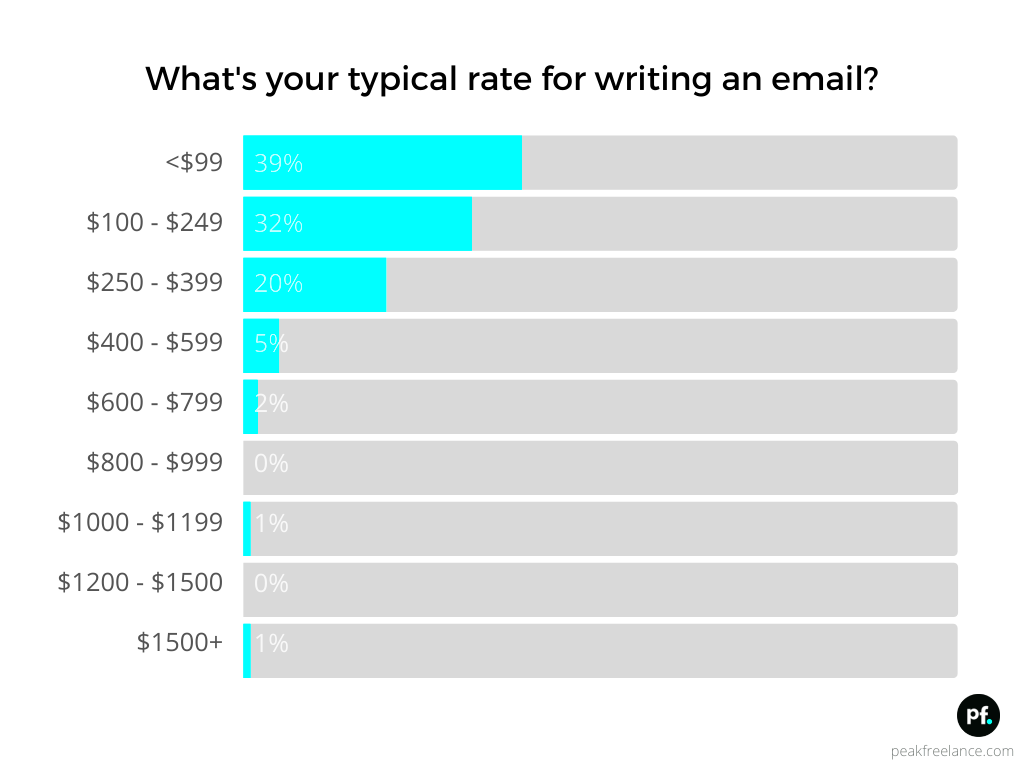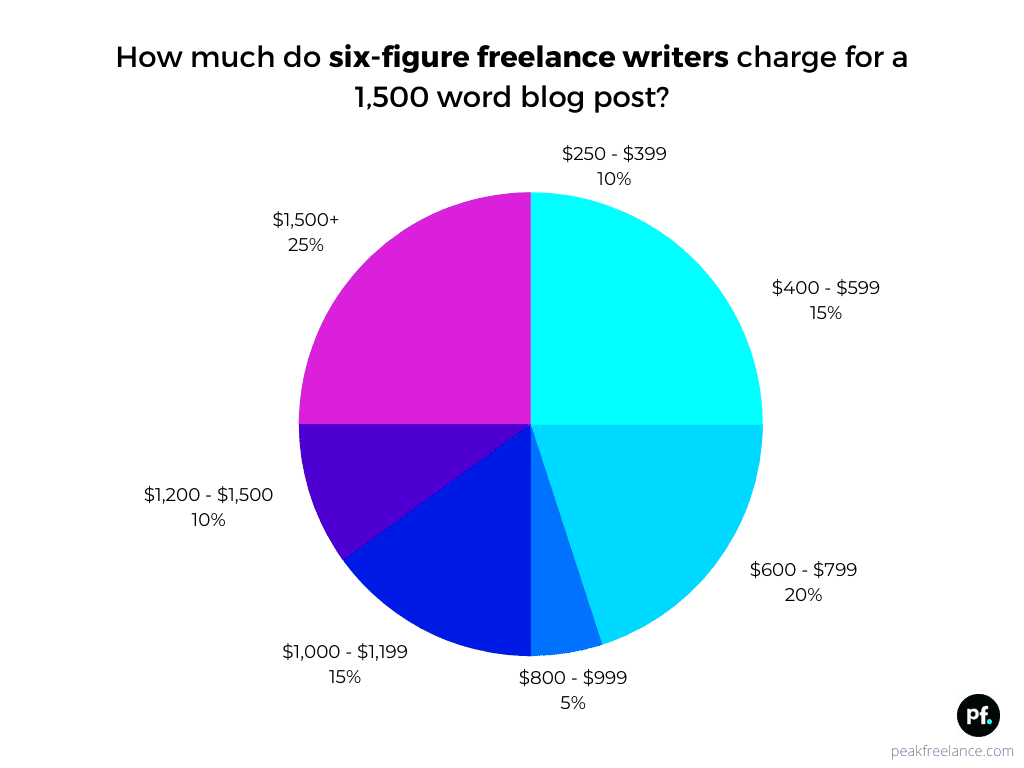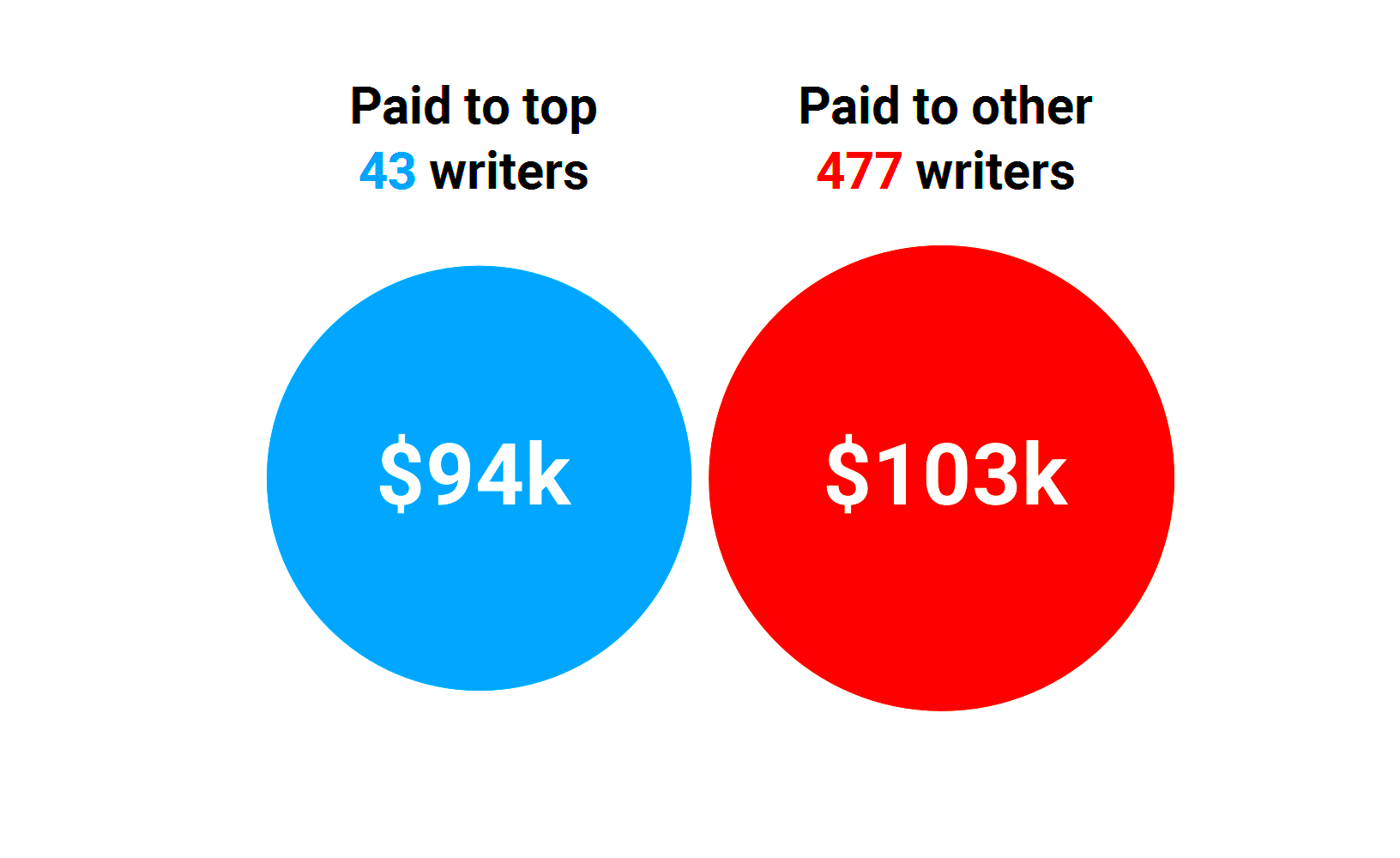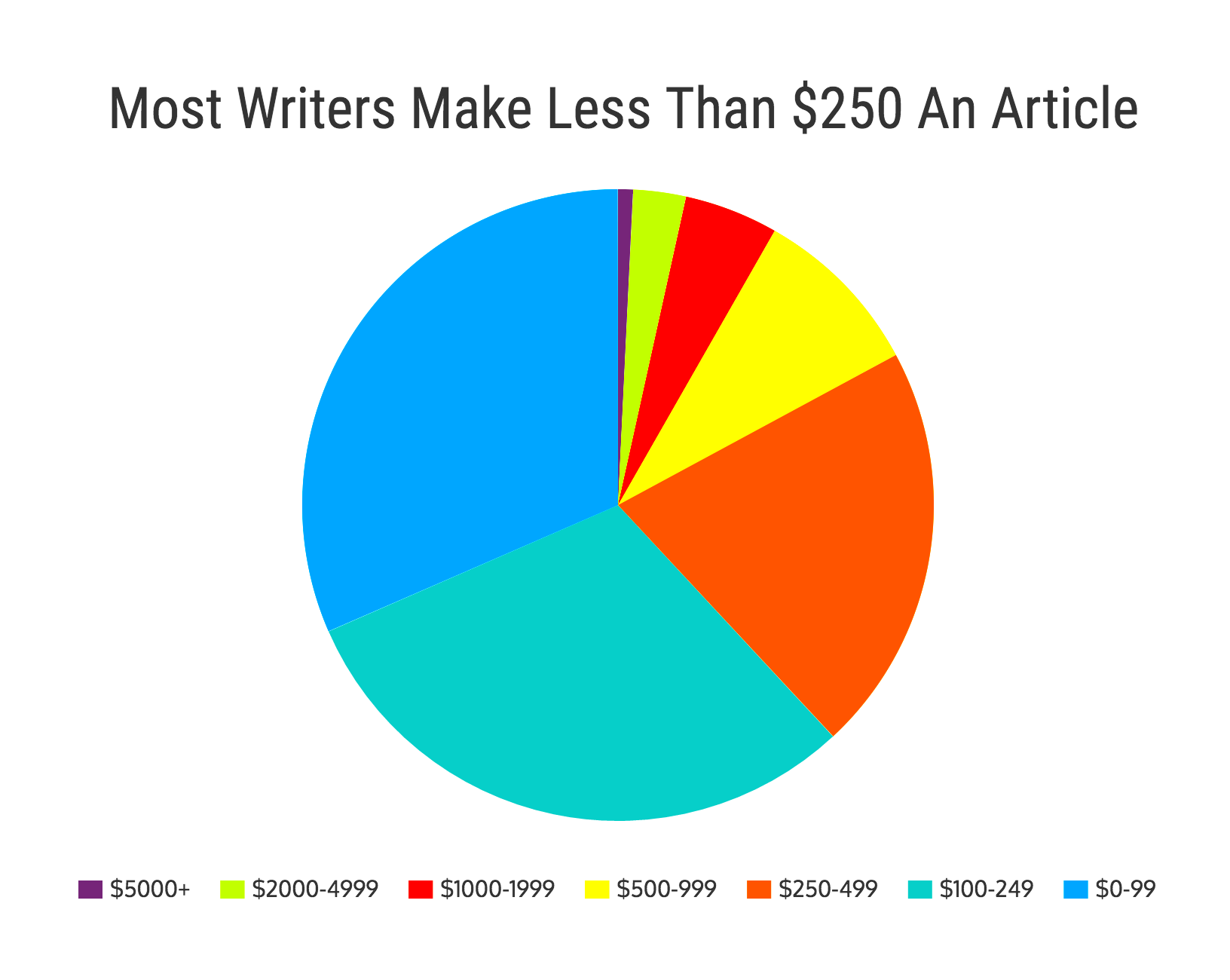Pursuing a career as a freelance writer can bring immense satisfaction, both in terms of creativity and income. When I embarked on this journey I was taken aback by the wide range of payment rates. It didn't take long for me to realize that grasping potential earnings is essential for managing expectations and ensuring fair compensation for your expertise and time. The rates for freelance writing vary based on numerous factors and there isn't a universal answer. However familiarizing yourself with the fundamentals can empower you to navigate the freelancing landscape, with greater assurance and insight.
Factors Influencing Freelance Writing Rates

When figuring out what to charge as a freelance writer there are several factors to consider. Here are some key ones to keep in mind.
- Experience: New writers often start at lower rates, while experienced writers can command higher fees. I remember my first few gigs were priced modestly, but as I gained experience and built a portfolio, my rates gradually increased.
- Type of Writing: Different types of writing can command different rates. For example, technical writing or specialized content often pays more than general blog posts.
- Client Budget: Some clients have bigger budgets than others. It's essential to understand the client's budget and negotiate accordingly.
- Project Complexity: More complex projects or those requiring extensive research typically warrant higher fees. I’ve found that projects with tighter deadlines or additional requirements often justify a higher rate.
- Geographic Location: Rates can vary based on location. While this might not always be within your control, it’s something to consider when setting your rates.
Also Read This: Why Can’t I See Buyer Requests on Fiverr?
Average Earnings for Different Types of Writing

The income from writing can differ greatly based on the kind of writing you engage in. Heres a general overview, drawing from my personal experiences and what is typically seen in the industry.
| Type of Writing | Average Rate per Word | Average Rate per Hour |
|---|---|---|
| Blog Posts | $0.10 - $0.50 | $20 - $50 |
| Technical Writing | $0.50 - $1.00 | $50 - $100 |
| Copywriting | $0.20 - $1.00 | $30 - $75 |
| Ghostwriting | $0.50 - $2.00 | $50 - $150 |
These numbers are simply averages and can vary depending on different factors. It’s crucial to do your research and tailor your approach to your specific field and knowledge. For example when I started specializing in copywriting I was able to increase my rates significantly as I refined my abilities and gained a deeper understanding of the industry. Remember that determining your rates involves striking a balance, between your level of expertise the value you bring to the table and what the market can support.
Also Read This: How Do I Change My Name on Fiverr?
How Experience Affects Freelance Writing Rates

When I started out in writing I set my prices. Like most newcomers I was keen to showcase my skills and gather some valuable experience. But as time went on I realized that the level of your expertise plays a role in determining your charges. With growth in this industry it's only natural for your rates to go up and they definitely should.
Here’s how your level of experience influences the rates you charge as a freelance writer.
- Skill Improvement: With each project, your writing skills improve. This proficiency allows you to take on more complex assignments and command higher rates. In my journey, I noticed that as my writing quality evolved, so did the quality of clients seeking my services.
- Portfolio Development: A strong portfolio showcases your best work and demonstrates your expertise. A well-curated portfolio can justify higher rates. When I updated my portfolio to highlight successful projects, I was able to increase my rates with confidence.
- Client Relationships: Experienced writers often have established relationships with clients, leading to repeat business and referrals. Building a network over time can significantly boost your earning potential. I’ve found that returning clients are more willing to pay higher rates for reliable work.
- Market Knowledge: Experienced writers understand market trends and client needs better. This knowledge helps in setting appropriate rates and negotiating effectively. My growing familiarity with industry standards helped me fine-tune my pricing strategy.
In short although initial rates may be modest with time and experience you can gradually increase your charges as you become more skilled and establish a reputation in your industry.
Also Read This: How to Change Your Username on Fiverr
Geographic Location and Its Impact on Pay

The place where you live can affect how much you charge for freelance writing. I learned this lesson early on in my journey. For example writers in cities or more advanced countries tend to have higher rates than those in rural or less developed areas.
Here’s how your location can impact your income:
- Local Market Rates: In metropolitan areas, the cost of living is higher, which often translates to higher rates for services. I noticed that clients based in cities like Mumbai or Bangalore were willing to pay more compared to clients from smaller towns.
- Client Budget: Clients from different regions might have varying budgets. Understanding these regional differences can help in setting appropriate rates. For example, international clients might offer better pay compared to local clients with tighter budgets.
- Remote Work Flexibility: With the rise of remote work, geographic location is becoming less of a constraint. You can tap into global markets, which can sometimes lead to better pay opportunities. I started reaching out to international clients and saw a noticeable increase in my earnings.
- Economic Conditions: Economic factors in your location can influence pay rates. In times of economic downturns, local clients might have reduced budgets, impacting the rates you can charge.
In general even though your location may affect your rates taking advantage of remote work options can enable you to reach clients offering higher pay in various areas.
Also Read This: What Are the Top Strategies for Using Fiverr’s Analytics to Improve Gig Performance?
Setting Your Own Rates as a Freelancer
Setting your own rates as a freelancer can be an exhilarating yet tough task. Its a delicate balance between recognizing the worth of your abilities and gauging what the market is willing to pay. When I first ventured into freelancing figuring out the rate was an adventure filled with experimentation.
Here are a few suggestions I’ve picked up over time when it comes to determining your rates.
- Evaluate Your Skills: Assess your skills, experience, and the value you bring to clients. Set rates that reflect your expertise. For instance, as I gained more experience, I adjusted my rates to better match the quality and value of my work.
- Research Market Rates: Look into what others in your niche are charging. This can give you a benchmark for setting your own rates. I found it useful to join freelance forums and communities to gather insights on industry standards.
- Consider Your Costs: Account for your expenses such as software, equipment, and other tools necessary for your work. Your rates should cover these costs and still leave you with a profit. I tracked my expenses meticulously to ensure my rates were sustainable.
- Be Transparent: Clearly communicate your rates and what they include to potential clients. Transparency helps in avoiding misunderstandings and building trust. I always outline my pricing structure in proposals to ensure clients understand what they’re paying for.
- Review and Adjust Regularly: Periodically review your rates and adjust them based on changes in your skills, experience, and market conditions. As I grew in my career, I regularly updated my rates to reflect my evolving expertise and the market demand.
Determining your rates is a journey that should reflect your aspirations, abilities and the current market landscape. Keep in mind that its all about striking a harmony that suits both you and your customers.
Also Read This: How to Change My Fiverr Profile Picture
Common Mistakes to Avoid When Setting Rates
Determining how much to charge for writing can be challenging and there are some common traps that many of us fall into, particularly when we're just starting out. I've experienced this myself and I've gained valuable insights from those initial missteps. Steering clear of these pitfalls can assist you in establishing reasonable and long lasting rates for your offerings.
Here are a few typical errors to be cautious about.
- Undervaluing Your Work: One of the biggest mistakes is setting rates too low in an attempt to attract clients. This can undermine your skills and make it harder to raise your rates later. I started off with lower rates to get more work but realized it was not sustainable in the long run.
- Not Considering Overheads: It’s easy to forget about costs like software, internet, and other tools you use. Your rates should cover these expenses and provide a profit margin. I learned this the hard way when my profits were lower than expected because I hadn’t factored in these costs.
- Ignoring Market Rates: Setting rates without understanding what others in your niche are charging can lead to pricing yourself out of the market or undervaluing your work. I found it helpful to research and compare rates within my industry to find a balanced pricing strategy.
- Overcomplicating Rate Structures: Having complex pricing can confuse clients and lead to misunderstandings. I used to have multiple tiers and add-ons, but simplifying my rate structure made it easier for clients to understand and accept.
- Failure to Adjust Rates: Rates should evolve as your skills and experience grow. Sticking to outdated rates can limit your earning potential. I regularly review and adjust my rates based on my current expertise and market conditions.
By steering clear of these pitfalls you can develop a pricing approach that accurately reflects your value and guarantees a consistent stream of projects.
Also Read This: When Did PewDiePie Upload the Fiverr Video?
Tips for Increasing Your Freelance Writing Earnings
Boosting your income as a writer goes beyond simply increasing your charges. It entails improving your abilities, broadening your client network and exploring fresh prospects. Here are a few strategies that have proven successful for me in increasing my freelance writing revenue.
- Expand Your Skill Set: Learning new writing styles or subjects can open doors to higher-paying gigs. For example, I took courses in SEO and technical writing, which allowed me to charge more for specialized projects.
- Build a Strong Portfolio: A compelling portfolio showcasing your best work can attract higher-paying clients. I invested time in creating a well-organized portfolio that highlights my expertise and diverse writing projects.
- Network and Market Yourself: Networking with other writers and potential clients can lead to new opportunities. I joined writing groups and attended industry events, which helped me make valuable connections and land more lucrative assignments.
- Leverage Social Proof: Client testimonials and case studies can enhance your credibility and justify higher rates. I collected feedback from satisfied clients and featured it prominently on my website to build trust with potential clients.
- Negotiate Wisely: Don’t be afraid to negotiate rates with clients. Be clear about your value and be prepared to discuss why you’re worth the rate you’re asking. I’ve found that many clients are open to negotiation if you can demonstrate the value you bring to the table.
- Diversify Your Income Streams: Consider adding related services, such as editing or consulting, to increase your overall earnings. By diversifying, I was able to create additional revenue streams beyond writing alone.
By putting these strategies into action you can boost your income prospects and build a more satisfying freelance journey.
Also Read This: How to Become a Seller on Fiverr
Frequently Asked Questions
1. How do I determine the right rate for my freelance writing?
Figuring out the rate to charge requires evaluating your abilities, background and industry standards. Look into what others in your field are asking for take into account your costs and the value you bring to the table. Begin with a starting point rate and make adjustments as you accumulate more experience and knowledge.
2. Should I charge by the hour or by the word?
Both approaches come with their own benefits. Hourly charging can be advantageous when dealing with projects that have an unclear scope while word based charging is typically favored for tasks that are more predictable. Think about which option suits your project types and client preferences.
3. How can I increase my rates without losing clients?
To raise your fees without risking client loss, highlight the benefits you provide, propose incremental rate hikes and support the adjustments with enhanced expertise or extra offerings. Nurturing client relationships can also facilitate a seamless transition when implementing rate changes.
4. Is it necessary to have a written contract for every project?
Absolutely, a contract can help set clear expectations, outline what needs to be done and specify payment details minimizing the chances of any confusion. Its a standard approach that safeguards both you and your clients.
5. What should I do if a client refuses to pay?
In the event that a customer declines to settle their bill begin by sending a courteous nudge. Should the matter continue you might have to consider steps like engaging a debt recovery service or consulting legal counsel based on the circumstances and situation.
Conclusion
Pursuing a career in freelance writing can be rewarding both in terms of satisfaction and financial success. However managing the intricacies requires careful consideration. From determining your pricing to recognizing how factors like experience and location influence compensation every aspect plays a role in ensuring you receive fair payment for your work. Through my experiences, I’ve discovered that being open about your fees continually honing your craft and staying informed about industry trends are essential for thriving in this profession. By steering clear of pitfalls and implementing strategies to increase your income you can establish a freelance writing career that not only offers financial rewards but also brings personal fulfillment and growth. Keep in mind that it’s a journey filled with lessons and adaptability; as you progress you’ll uncover new opportunities and avenues to enhance your freelancing path.




